Exercise Daily _ Raw Bee Pollen Supplement for Athletes: Nature’s Pre-Workout with Real Science
Quick take: If you want a clean, natural pre-workout that supports energy, recovery, and overall wellness, raw bee pollen is a compelling option. It’s a real food made by bees—not a factory formula—and it comes packed with proteins, essential amino acids, B-vitamins, minerals, enzymes, and antioxidant polyphenols that athletes care about. Modern studies and centuries of traditional use point in the same direction: bee pollen belongs in a smart athlete’s nutrition plan—used correctly and safely.
What exactly is raw bee pollen?
Bee pollen is the pollen granules that honeybees collect from flowers, mix with nectar and bee secretions, and carry back to the hive. For humans, that mixture becomes a nutrient-dense food. Reviews report ~250 identified substances in bee pollen, including carbohydrates (≈13–55%), proteins (≈10–40%), lipids (≈1–13%), fiber, vitamins (notably B-complex), minerals (potassium, magnesium, calcium, manganese), and a spectrum of flavonoid antioxidants.123 These numbers vary by plant source and season—which is normal for real foods.
Ancient roots: how athletes used bee products before “supplements” existed
Centuries before modern sports nutrition, bee products sat at the center of human diets and rituals. Records describe use of pollen across Ancient Egypt, Greece, China, and the Americas for sustenance and ceremony.4 Greek and Roman lore even cast pollen and honey as “ambrosia”—a vitalizing food for strength and longevity.5 While legends should be taken with salt, they hint at a long practical history: people noticed bee foods improved energy and recovery long before “pre-workout” was a category.
How raw bee pollen is harvested and processed (so you know what you’re eating)
Responsible beekeepers place a simple pollen trap at the hive entrance—a grate that gently brushes some pollen pellets off returning foragers. The rest goes to the colony. Collected granules are then cleaned and typically air-dried or gently dehydrated to stabilize moisture while keeping enzymes and polyphenols intact.67 Minimal processing is key: excessive heat can degrade bioactive compounds. When you buy “raw granules,” look for “gently dried,” “unheated,” and “polyfloral” on the label.
Bee Pollen & Mitochondria: Why Athletes Care
Short version: Bee pollen may help your cells’ power plants (mitochondria) work better. Its antioxidants can protect mitochondria from oxidative stress (extra “rust” from hard training), while its bioactive compounds appear to increase mitochondrial enzyme activity and support energy production in animal models.
What the research shows: In exercise-stressed and older, undernourished rats, diets containing bee pollen helped normalize key mitochondrial enzymes (complex I–IV) and markers like citrate synthase—changes linked to improved muscle energy metabolism and recovery. Bee pollen also reduced reactive oxygen species (ROS) and improved antioxidant defenses in muscle tissue, suggesting a protective effect on mitochondria during high loads and aging.
Coach’s note: These benefits come mostly from animal and cell studies. Human data are still limited, so consider bee pollen as a food-first adjunct—not a miracle pill. If you have allergies to bee products or pollen, talk to your clinician before using.
Why athletes should care: the nutrition in everyday language
- Complete protein profile (for a food): Bee pollen contains a broad spectrum of amino acids used to build and repair muscle. Exact ratios vary by flora, but reviews consistently show meaningful protein (10–40%).2
- B-vitamins for energy metabolism: Thiamin (B1), riboflavin (B2), and pyridoxine (B6) support the pathways that turn food into usable energy—critical for training days.3
- Minerals that matter: Potassium and magnesium are prominent and support muscle contraction, hydration balance, and nerve function.3
- Polyphenols & flavonoids: These antioxidant compounds help neutralize exercise-induced oxidative stress—think less cellular “rust” after hard efforts.89
- Enzymes & co-factors: Raw pollen preserves enzymes that may aid digestion and absorption when consumed with other foods.1
What does the science say about performance and recovery?
Direct human trials on bee pollen alone in athletes are limited, but emerging evidence around bee-derived blends and in-vitro/animal data points to plausible mechanisms:
- Performance signals: In a trial that combined honey + royal jelly + bee pollen, runners in the intervention group improved 1500-m times compared with controls.10 While pollen wasn’t isolated, the result supports the “bee matrix” concept athletes already use (honey pre-workout, pollen at breakfast).
- Anti-inflammatory & antioxidant actions: Multiple studies show bee pollen extracts can reduce inflammatory mediators (e.g., NO, PGE2) and modulate NF-κB signaling in cells, supporting recovery and tissue protection after heavy training.911
- Exercise-related stress: Experimental work with monofloral bee pollens suggests mitigation of muscular stress markers—consistent with the antioxidant mechanism above.12
- Honey synergy: Honey itself shows benefits for performance at moderate intensity and may blunt inflammatory cytokines—useful if you pair honey (fuel) with pollen (micronutrients) around training.13
Bottom line for athletes: Bee pollen won’t replace carbohydrates or protein after a hard session, but as a daily micronutrient and antioxidant booster, it’s a credible, food-first complement to your training diet.
How to use it (simple, safe, athlete-friendly)
- Start low: 1/4–1/2 tsp daily for a week to check tolerance, then build to 1–2 tsp (≈5–10 g). Sprinkle on yogurt or oatmeal, blend into smoothies, or take a small spoonful with fruit. Pollen has a mild, floral crunch.
- Timing: Morning with breakfast or 60–90 minutes pre-workout alongside a carb source (banana + honey). Post-workout, pair with protein and carbs for recovery.
- Storage: Keep cool and dry; refrigeration helps preserve volatile compounds.
Safety first: who should be cautious?
Because pollen is, well, pollen, people with strong seasonal allergies or atopy can react. Rare but documented cases of anaphylaxis have occurred after ingesting bee pollen supplements, likely from weed pollens (ragweed, chrysanthemum, etc.) in the blend.141516 If you’re pregnant, breastfeeding, or have known pollen allergies, talk to your clinician before use. Note: sting allergies ≠ automatic honey/pollen allergy, but caution is wise.17
Nature’s best vs. the supplement aisle: cost, culture, and marketing
Cost & value: A typical jar of quality raw, gently dried, polyfloral bee pollen might cost less per serving than many branded pre-workouts. You’re paying for a whole food with broad micronutrients instead of a stimulant-heavy formula. The trade-off: natural variability. One batch may be richer in certain flavonoids than another—just like olive oil or coffee.
Culture & identity: From the Mediterranean to Persia to Indigenous communities in the Americas, bee products were part of everyday nourishment and medicine.4 Choosing pollen honors a food tradition where simple mixtures (honey + pollen + milk) fueled laborers and athletes without synthetic additives.
Marketing reality check: Many pre-workout supplements rely on caffeine, artificial sweeteners, and trademarked ingredients with mixed evidence. Bee pollen, by contrast, offers a matrix of nutrients that support energy metabolism and recovery naturally—yet it is not magic and should not replace basic sports nutrition (adequate carbs, protein, fluids, sleep).
Further Reading
If you enjoyed this article, don’t miss our companion piece on Royal Jelly Benefits for Athletes, where we explore how bee-derived nutrients support performance, mitochondrial health, and recovery.
As an Amazon Associate, Exercise Daily earns from qualifying purchases. This post may contain affiliate links. Last updated: February 20, 2026
Buyer’s guide in one minute
- Choose “raw” granules that are gently dried and labeled polyfloral. Single-plant (“monofloral”) options are fine but may taste stronger.
- Source transparency: Reputable beekeepers and brands will state origin and handling. Avoid products with excessive heat processing.
- Introduce slowly if you have seasonal allergies; stop immediately if any itching, hives, or swelling occur and seek medical care.
How pollen is actually collected (for the curious)
In commercial beekeeping, pollen traps at the hive entrance gently dislodge a portion of the pellets as foragers return. The rest continues to the colony to feed brood. After collection, granules are cleaned and dried for safe storage.67 Here’s a helpful visual demonstration of small-scale drying and processing.18
Simple athlete’s template (10-year-old easy)
-
- Breakfast: Yogurt + fruit + 1 tsp raw bee pollen.
- Pre-workout (60–90 min): Banana + drizzle of honey; optional 1/2 tsp pollen.
- Post-workout: Protein (eggs, Greek yogurt, chicken, or protein shake) + carbs (rice, potatoes, or oats). Pollen is a bonus, not a protein replacement.
- Hydrate & sleep: Water, electrolytes as needed, and 7–9 hours of sleep—the best “supplements” you’ll ever take.
Eat daily, sleep daily, exercise daily.

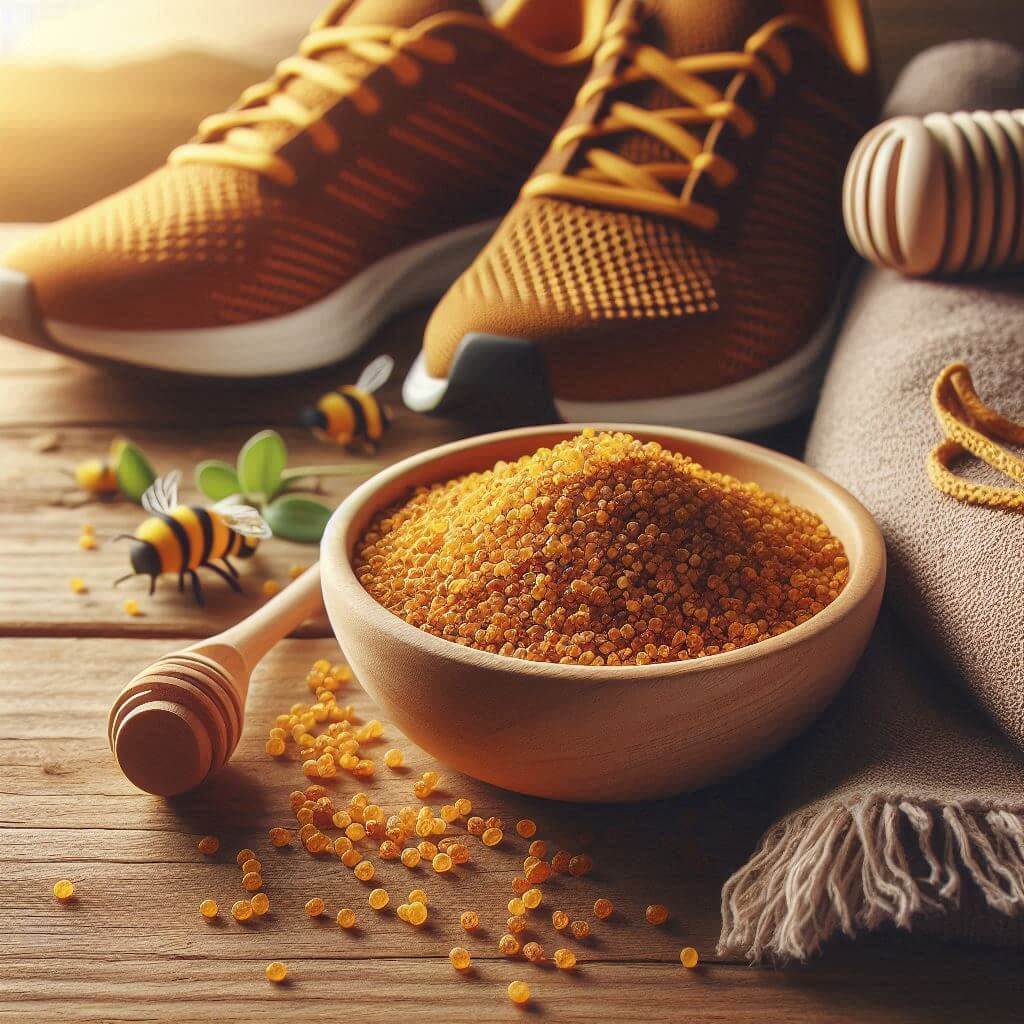
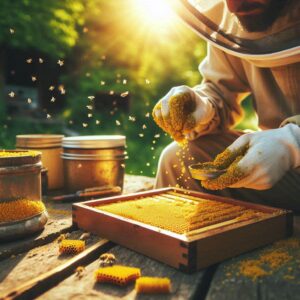
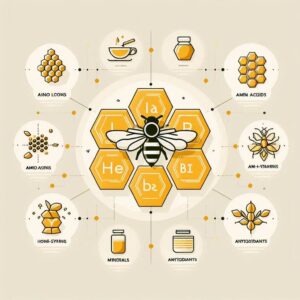



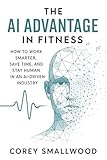
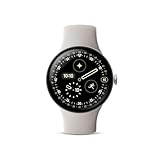


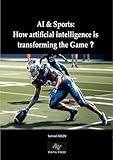
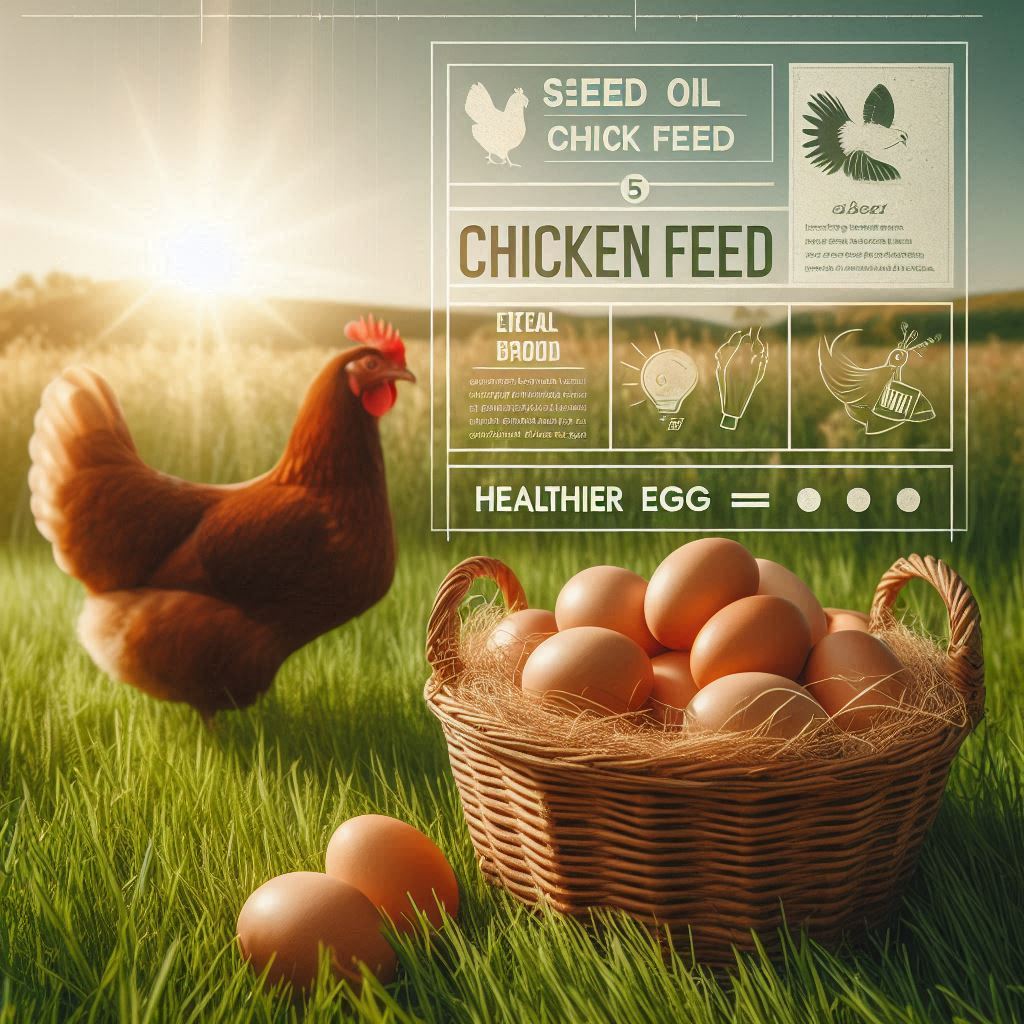
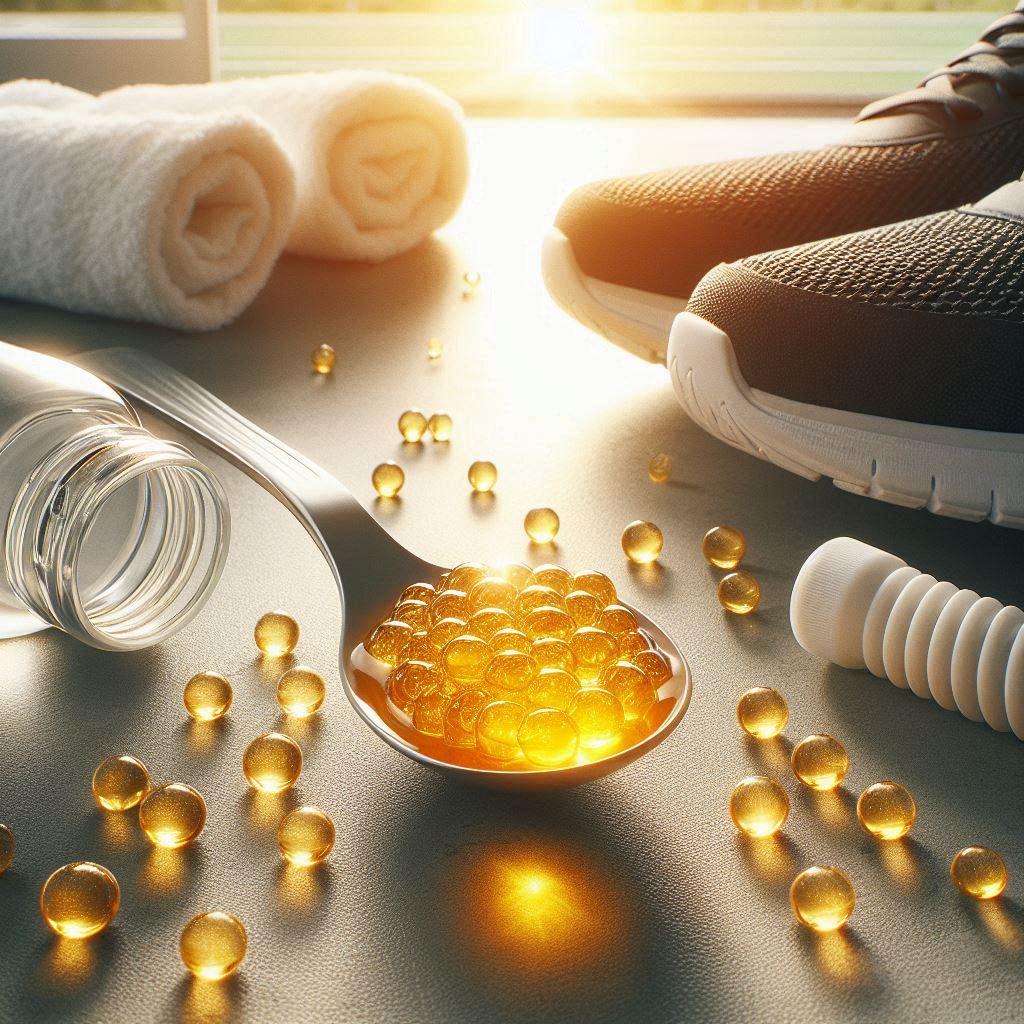
![The Science Behind Calisthenics for Weight Loss [Ultimate Guide]](https://exercisedaily.com/wp-content/uploads/2023/06/Untitled-design-6-324x160.png)